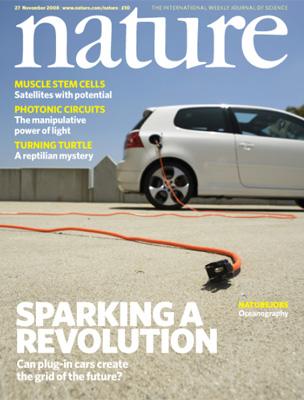Nature journal libel case continues
- Published

The article appeared in an edition of Nature that was published in November 2008
A scientist has told the High Court that an article criticising him was "scandalous" and had nothing to do with freedom of expression.
Professor Mohamed El Naschie is suing the Nature journal for libel and says the claims in the article are "despicable and defamatory".
The barrister representing Nature said the article, published in 2008, was true and in the public interest.
Judgment on the case will be reserved and is set to be announced in January.
In November 2008, Nature published an article which alleged that Prof El Naschie self-published many papers and that some did not seem to have been independently checked by scientists working in the same area - a process known as peer review.
The article also alleged that five of the 36 papers in the December edition of Prof El Naschie's publication - Chaos, Solitons and Fractals - were written by him and 60 self-penned articles had been published since the beginning of the year.
Prof El Naschie, who was representing himself, used his opening statement to tell the court that publishing in one's own journal was not something that was unheard of.
He said that he would discuss his papers with fellow scientists, and only when he thought that they were of a sufficiently high standard would he publish them.
"I am too arrogant and have too much self-respect to allow a bad paper to pass through," he said.
Prof El Naschie called one witness, Prof Otto Rossler - an honorary editor of Chaos, Solitons and Fractals.
He told the court that there was no-one who could peer review him, referring to Prof El Naschie, because "if you have something new to offer, peer review is dangerous", adding that in such cases "peer review delays progress in science".
Prof El-Naschie asked his witness whether he thought that his (Prof El Naschie) papers were of "poor quality".
Prof Rossler replied: "On the contrary, they were very important and will become more important in the future."
And he added: "You are the most hard-working and diligent scientists I have ever met."
Last week, Nature provided testimony from three of its expert witnesses that the procedures used by Prof El Naschie's journal for the selection of papers did not appear to follow the normal practice of peer review.
The case continues next week, and the judgment on the case will be reserved and is expected to be announced early in the New Year.